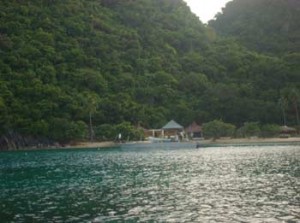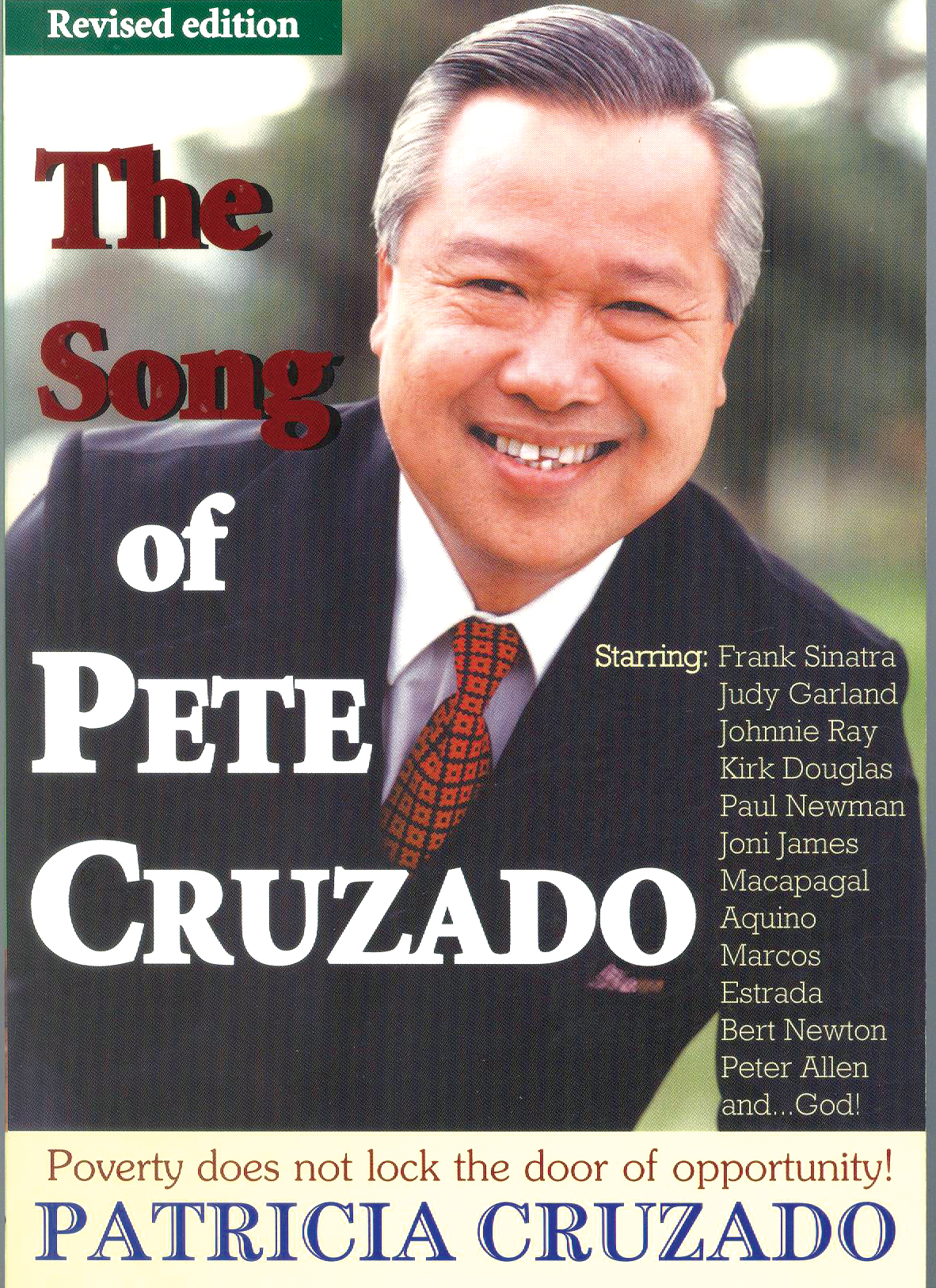 Last June, after fifty years, I finally went back to my alma mater, the University of Nueva Caceres, in Naga City, Philippines. It was a ‘return to my roots trip’ that I have been planning for many years now. It gave me opportunities like taking the train, the only means of transportation I knew when I was a little kid growing up in Sipocot, a railroad town in Camarines Sur, near the boundary with Camarines Norte. This last visit to the Philippines brought me to Sipocot, Naga City, Nabua, the birthplace of my father, Legazpi City where a niece and her family residing, Caramoan, the birthplace of my half-brother, and Pangasinan where some of my relatives I have not seen nor communicated with during the past fifty years are residing.
Last June, after fifty years, I finally went back to my alma mater, the University of Nueva Caceres, in Naga City, Philippines. It was a ‘return to my roots trip’ that I have been planning for many years now. It gave me opportunities like taking the train, the only means of transportation I knew when I was a little kid growing up in Sipocot, a railroad town in Camarines Sur, near the boundary with Camarines Norte. This last visit to the Philippines brought me to Sipocot, Naga City, Nabua, the birthplace of my father, Legazpi City where a niece and her family residing, Caramoan, the birthplace of my half-brother, and Pangasinan where some of my relatives I have not seen nor communicated with during the past fifty years are residing.
It was not only nostalgic for me but both a welcome and goodbye meetings with relatives, after all I am now in the twilight of my life and who knows, I might not see them again.
My relatives were delighted to see me and lots of my great and grandnephews and nieces were happy to meet and see their ‘famous’ writer lolo whom they only had the chance to know through Facebook chat.
The first day or night of my trip in the Philippines was through the revitalised Philip-pine National Railways (PNR) with their legendary Bicol Express, not the food, but the train which bring me lots of memories of my childhood. The new train travel is more passenger friendly. For every train scheduled trip, there is a designated crew members composed of two conductors, maintenance men, security officers, cleaners, and train mechanics who stayed awake during the night of the Bicol Express.
I asked my two nephews who have not been to Bicol in their lives, although their parents were Bicol born, to come with me. They were never been given the opportunity to visit their parents humble beginning in Bicol.
The Bicol Express left the new Tutuban train station at 8:30pm. I made a reservation for three taking the reclining seats accommodation, not the sleeping couch, which is unlike the Eurail train where one has an enclosed cabin. The sleeping couch is divided into several cubicles and separated only by curtains. The reclining couch, for me is much better choice because of the leg space. We brought some light snacks since food are not available on board, although there is supposed to be a dining coach for every Bicol express leaving Tutuban, I found out later that the dining coach is only used when VIPs are on board the train.
We arrived at Sipocot station at around 4:30am and my adopted brother, Manoy Eden, was on hand to take us to his house, with just basic facilities. I warned my two Manila born nephews about lack of such ‘little luxuries’ they are familiar with while growing up in BFHomes in Paranaque. After a couple of hours rest, we ventured into the coconut farm of Manoy Eden, with his only son living with him. The rest of his children have gone into various places in the Philippines to raise their own families.
It took as almost two hours walking the farm which reminded me of my childhood days in Napolidan in the middle of the Bicol National Park (BNP) with coconut trees replacing the forest abundant in the BNP, the shallow creek reminded me of the shallow portion of Napolidan River where we took our swimming and laundry. Although, I was grasping with breath due to the distance we walled, I was glad to note that Manoy Eden who is now past his 70 years old and suffering fron arthritis still able to walk a distance very fast, leaving us ‘city breeds people’ way behind.
[portfolio_slideshow id=189]
Along the way, we passed properties of the Villafuerte clan and Manoy Eden’s in-laws properties, including that of his deceased wife, also planted to coconut trees which are all bearing fruits. He is expecting a good harvest this year but worry about the thieves who would come while he is away in his little house in Bolo Norte, Sipocot. I was glad to learn that he finally found a trusted relative of his wife’s family who agreed to take care of his coconut plantation and takes charge of the copra making during harvest time.
My stay in Sipocot was brief because the people I planned to see for the 2013 reunion of ‘baby boomers’ who left Sipocot in the 60s are not available, although I had the chance to talk with former childhood mates and obtains additional information for the book I am preparing for the reunion next year. Then we took the bus to Naga City where we stayed at the Naga City Green Hotel, owned and operated by the family of the husband of my grandniece. I had the chance to see her three young children while she is based in Italy. I enjoyed the children, particularly the youngest one who is very precocious and actively teasing my nephews who are actually his lolos. He asked me if he could just call them Tito or Kuya, instead of lolo. He is embarrassed to address my nephews who are just a few years older than him as grandpa.
Early in the morning while my two nephews were still sound sleeping, I made an early walk around the university campus which brought me memories of my high schools days. The then newly constructed Sports Palace inside the campus is now complete and a number of new big buildings are now on then nearby vacant space which was then a sacatehan during my time. The nearby Plaza Rizal is alive with city folks doing their morning healthy exercises, not to be forgotten the members of the city police and other public servants doing their morning drill too. I went to the old place where me and my brothers rented a room while attending high school at the UNC. Abella Street where that place was located is no longer there. I could still remember the squatter like surrounding of the place when we were living there. The memory that lingers in my mind was the night before my father was buried. I could not remember why I went back to Naga City while my father was being given the customary wake rites at the old ancestral home of the Perdon family in Nabua, an hour bus trip from Naga City. Old folks warned us not to take a bath or shower while the deceased was still being giving a wake. I did bathed during my father’s wake.
In the city, I was also lucky to know that the person who brought me to Manila and gave me the chance to improve my life by studying in the evening and working during the day is still living. He is now in his 90s. He could not remember me, but he remembers one of those he helped studied in college went to work in the tourism. I told him that I was that person and I expressed to him my gratitude and gave him a copy of my biographical book which mentioned his kindness by taking me to Manila and giving me a break. His name is Bibiano Duadico, Sr. He is now an American citizen and a retiree. He is planning not to return to America anymore.
From Naga City my niece, the youngest daughter of my half brother, Bonifacio Perdon, Sr., collected us and took us to Nabua, Camarines Sur where I visited the place where the ancestral home of the Perdon family was originally located. It was in that house that many relatives comprising the Perdon family gathered, with us little boys compelled to kiss the hands of elder people whom we have not meet or known to us. We were told they were our ‘lolo and lolas, aunties and uncles and other elder relatives.’
The old ancestral house is no longer there. What is left is the small structure built by Aunt Prosing, a couple of years before she died and from retirement money and first pension as a retired public school teachers. Many of my relatives, including me, were recipients of the kindness of my departed Aunt Prosing, my father’s younger sister who did not marry to devote her time to our ageing grandparents and the fast growing number of nephews and nieces, all seemingly needed her support. I can remember, one weekend, I found myself visiting her at the old house. I remember her face was delighted to see me, one of her few nephews who seldom set foot in that grandiose bahay na bato house.
From Nabua, we proceeded to Legazpi City with my nephews and two apo sa tuhod tagging along. We stayed over-night at my niece’s place. Her husband works with the provincial governor’s office and drove us to the famous Cagsawa ruins in Daraga, Albay, which was my first. We had a sumptuous seafood dinner and enjoyed the night talking about the Perdon family.
The following morning, we took another bus and proceeded to visit Caramoan, where my father spent his first work assignment as a public school teacher. From Caramoan, we went back to Naga City where my cousin, Fred Perdon, who owns GNNTV48 in the city scheduled an interview for me in a segment, Get Real with Karmi. The interview run through my experience in the Philippines before I migrated to Australia, with emphasis on the number of books I have written. My autobiograpical book about the Perdon family titled The Life and Times of the Perdon Family was discussed and indorsed during the TV interview. Back at the Pearl Manila Hotel in Manila, the couple of days were spent dining with old friends and co-cultural workers from the National Library, National Museum, and National Historical Commission of the Philippines, including a cup of coffee with noted private cultural worker, Danny Dolor who founded Tribong Pinoy.
From Manila, I went to Pangasinan where my other relatives are permanently settled. Manoy Doy (Teodoro Bermal), the eldest in the Perdon family is now living alone. The wife of his deceased youngest brother, Manoy Ben (Bienvenido Bermal) is now a retired teacher and able to support her two sons who have their own families when her husband died in action.












Leave a Reply